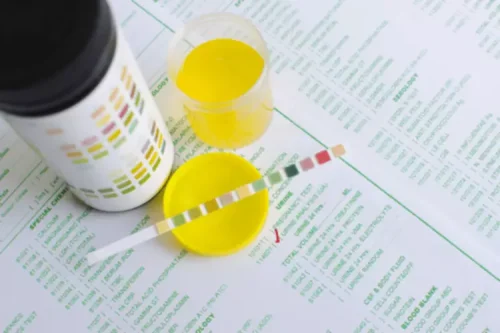
Your doctor may instead test more general allergens, like red wine, white wine, yeast, or sulfites. Allergies are an abnormal immune response to an ingredient in wine. Some people, especially those with asthma, may also have a sulfite sensitivity, which is an immune reaction. A sulfite sensitivity is typically classified as an allergy and may result in mild to severe symptoms. In conclusion, if you find yourself sneezing when you drink alcohol, know that you are not alone.

Cite this Response

Reactions to wine could also depend on the specific type of grape used in the wine. For example, one publication reports the occurrence of negative reactions in those with hypertension after consumption of wine containing Merlot grapes. Investigators found that 83 percent of respondents reported that their symptoms developed after consumption of red wine. White wine was the next most prevalent, with 31 percent reporting it as a symptom trigger. To make a diagnosis of allergy, a healthcare provider will first take a medical history and do a physical exam. While an intolerance can lead to uncomfortable symptoms, with an allergy, there is a chance anaphylaxis, a life-threatening reaction, can occur.
Signs and symptoms of a wine allergy
- People of Korean, Japanese, or Chinese descent are more prone to this genetic defect than people of other ethnicities.
- One is that alcohol dilates blood vessels in the nose, which can cause irritation and lead to sneezing.
- If left untreated, an allergic reaction can quickly become worse.
- It appears to be genetic and to occur after eating large meals and doesn’t cause any major problems.
- Treatments can include medication and counseling, and it may be possible for you to moderate your drinking rather than quit altogether.
This prevents your body from digesting alcohol properly. If you find that certain drinks trigger your sneezing, try switching to a different type of alcohol. For example, if wine makes you sneeze, try drinking sneezing when drinking alcohol vodka or gin instead. Likewise, if beer makes you sneeze, try drinking vodka or gin instead. And if cocktails make you sneeze, try making your own with fresh fruit juices instead of pre-made mixes.
Allergy symptoms that alcohol makes worse
If you’re looking for a way to prevent sneezing when you drink, try making your cocktails with fresh fruit juices instead of using pre-made mixes. This will help reduce the number of histamines in your drink and make it less likely to trigger a sneeze. If you find that certain foods make you sneeze, such as strawberries or shellfish, try avoiding them before you drink. This will help to reduce the number of histamines in your system and make it less likely that they’ll trigger a sneeze.
- Other studies have found that egg whites and gelatin are often used in the filtration processing of wine.
- It’s important to remember that very specific allergens, such as individual grape proteins, may not be available as reagents for allergy tests.
- For instance, the nerve endings in the nose might react to triggers too easily.
- Sneezing is usually not harmful, but it can be a nuisance.
- This is yet another autonomic nervous system response to alcohol withdrawal.
- Alcohol increases your risk of breast cancer because it causes an increase in estrogen levels, and damages DNA, which can lead to the development of cancer cells.
- However, scientists have yet to find any evidence for this.
- Some medications can stop your ALDH enzymes from working as well as they normally do.
- As with vitamin C, chamomile has antihistamine effects.
Tremors often affect the hands but can occur elsewhere in the body as well, according to the U.S. When this inflammation occurs in the airway, patients can experience wheezing and shortness of breath. Many people are familiar with common side effects of alcohol, including lowered inhibitions, euphoria (i.e., feeling “tipsy”), decreased coordination, and hangovers.
Tips for Coping With Alcohol Relapse Triggers

This increased sensitivity can lead to a sneeze reflex being triggered, causing you to sneeze. In some cases, an allergic reaction can be severe and lead to anaphylaxis. If your symptoms are very mild, you may have a food sensitivity rather than a true allergy.
